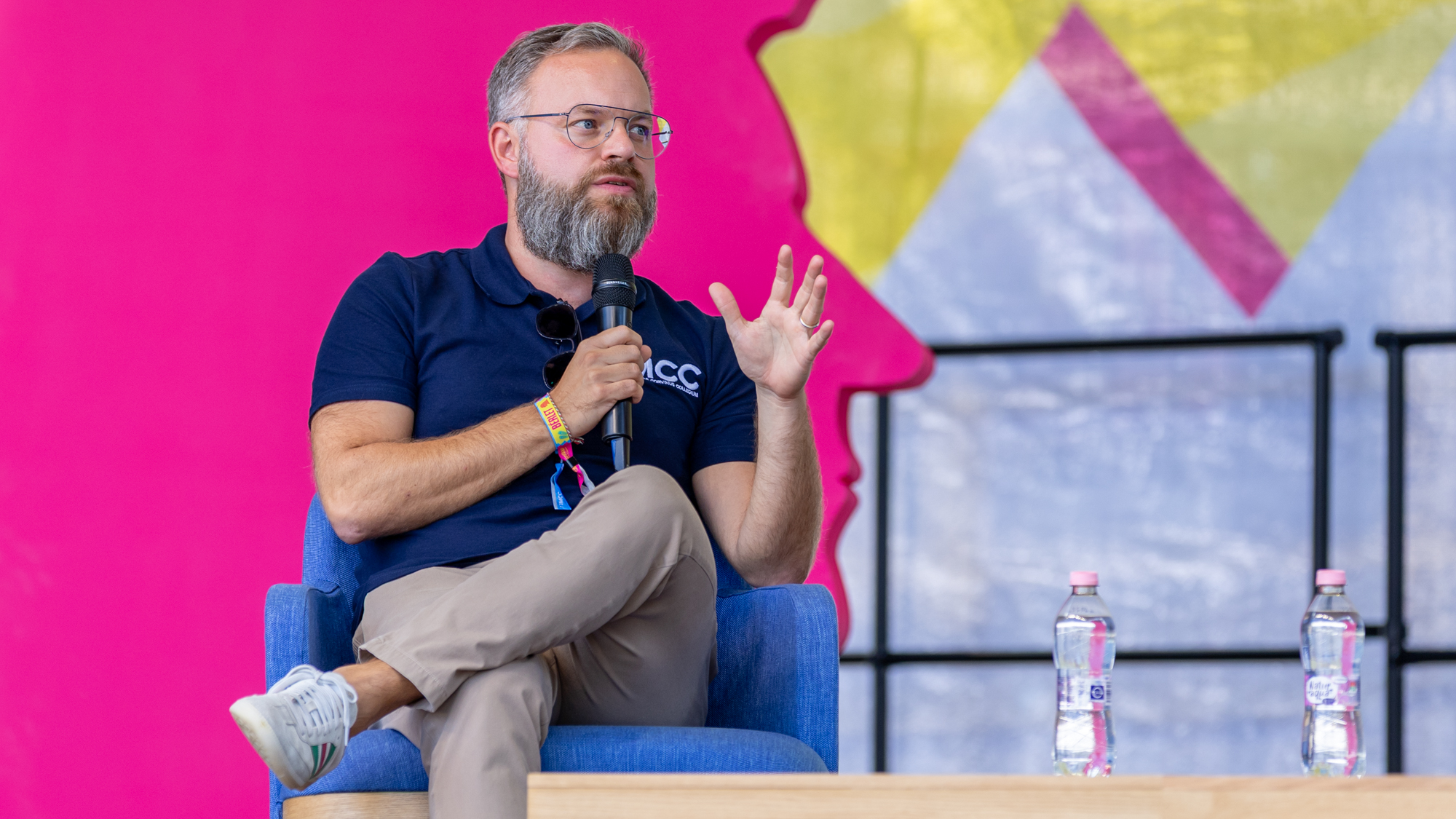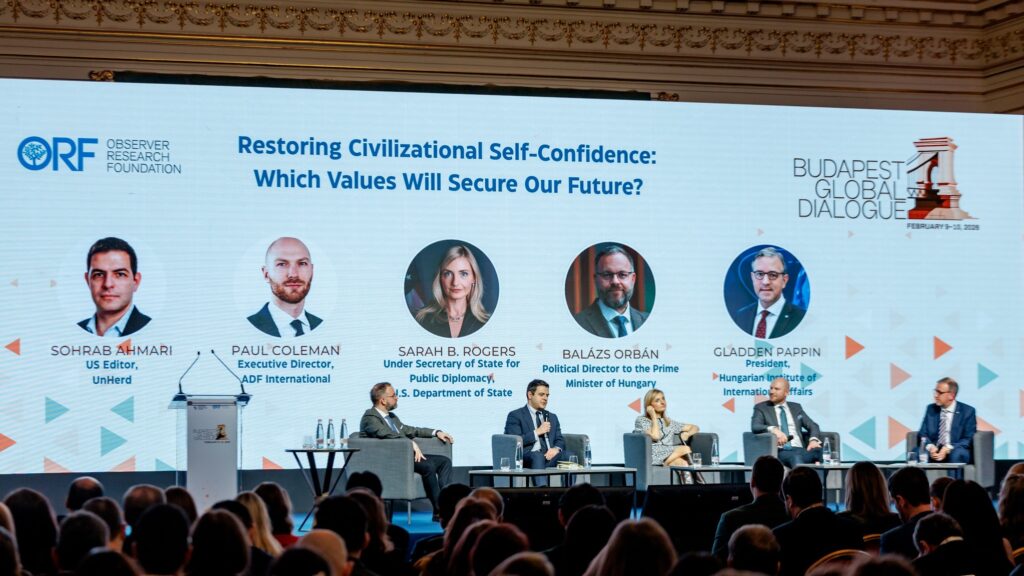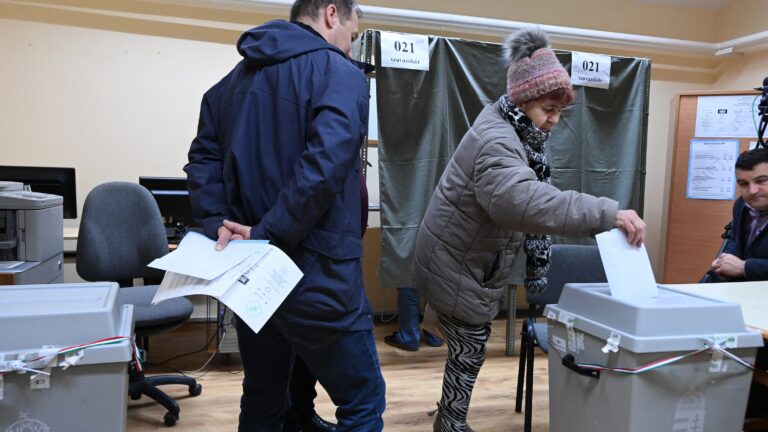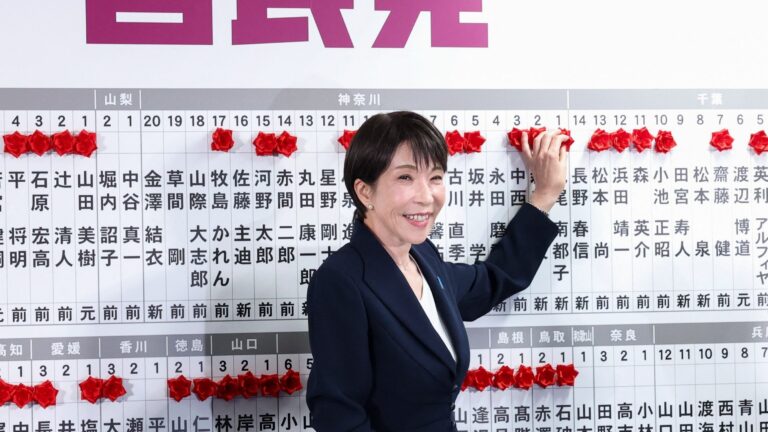Balázs Orbán, political director of the Hungarian prime minister, discussed several challenges facing Europe, from the war in Ukraine to mass migration, in an interview with the French conservative daily Le Figaro. During the discussion, he explained that Prime Minister Viktor Orbán always stands for the Hungarian people, not for the benefit of Eurocrats.
Balázs Orbán on X (formerly Twitter): “✍️📰 The nation is the framework for meeting 21st-century challenges. In 🇨🇵 @Le_Figaro & @FigaroMagazine_ interview by @AlexDevecchio, I discuss national sovereignty, 🇭🇺Hungary’s strategy, Ukraine’s EU bid, and why “Orbanism” is sovereign, patriotic governance – not ideology…. https://t.co/zKTFX8fDPs / X”
✍️📰 The nation is the framework for meeting 21st-century challenges. In 🇨🇵 @Le_Figaro & @FigaroMagazine_ interview by @AlexDevecchio, I discuss national sovereignty, 🇭🇺Hungary’s strategy, Ukraine’s EU bid, and why “Orbanism” is sovereign, patriotic governance – not ideology…. https://t.co/zKTFX8fDPs
No Ideology
He stated that what the international media labels ‘Orbánism’ is not an ideology, but sovereignist and patriotic governance. ‘We believe in traditional values like family, nation, and order, but we are also adapting to the challenges of the 21st century,’ he said. He pointed out that Viktor Orbán’s government includes national liberals, Christian democrats, and national conservatives, all united by their commitment to Hungary’s sovereignty. ‘We believe that the nation is the framework within which we can address the greatest challenges of our time,’ he added.
Responding to a question, he recalled the prime minister’s recent speech at Bálványos Free University, where he warned that the changes in the world order are no longer theoretical but a reality, citing migration and the arms race as examples.
‘In this increasingly polarized world, Hungary will not automatically align with any bloc; rather than the logic of commitment, the government will independently approach both the East and the West, following Hungarian interests,’ he said, highlighting that this is not neutrality but foreign policy grounded in sovereignty, openness, balance, and pragmatism.
‘We believe that the nation is the framework within which we can address the greatest challenges of our time’
He noted that Viktor Orbán first used the term ‘illiberal democracy’ in his 2014 speech at Tusványos. ‘At the time, it sparked controversy, but today, the prime minister’s words can be seen as prophetic.’ He underlined that illiberal democracy means ‘a balance between the will of the majority and the protection of individual freedom,’ a system where power derives from the people, not from elites, non-governmental bodies, or elected officials.
He also recalled that Viktor Orbán became known for his opposition to the Soviet system, and ‘we are continuing our resistance in the same spirit, but now against what is coming from Brussels.’ ‘Back then, it was communism; today, it is liberal imperialism,’ he said.
From Ukraine to Family Policy
‘Our foreign policy is based on national interests. We are neither pro-Russian nor pro-Ukrainian; we are pro-Hungarian,’ he pointed out. Regarding the war in Ukraine, Balázs Orbán explained that from the outset, the Hungarian government has maintained that Europe should strive to mediate, recalling Viktor Orbán’s visits for peace—such as to Russia, China, and Türkiye—to protect the Hungarian people and European stability.
He stressed that, for Hungary, this war is not an abstract issue but a direct threat to the country’s security and economy, and the continuation of the conflict also contradicts European interests. ‘We have always said that prolonging the war is not in Europe’s interest,’ he stressed.
On family policy, he said that Hungary plans to allocate 5 per cent of its GDP to family support by 2026, mothers with two children will soon be exempt from income tax, and young people will receive assistance in buying their first home, often at lower monthly costs than renting. ‘Even an 18-year-old can now own their home, which is unthinkable in Western Europe,’ he said.
He also remarked that Hungary respects the fact that some countries view immigration as a solution to deteriorating demographic trends and labour market challenges, ‘but we have no intention of importing people.’ He added that migration not only affects public safety but also the functioning of democracy; sooner or later, migrants must be granted citizenship, thus altering society ‘slowly but irreversibly.’
Regarding next year’s parliamentary elections, he said: ‘Hungarian voters see the truth. We are fighting for them, and we trust they will support us.’
Solving Europe’s Problems
On the relationship between the EU and Hungary, he explained that the EU is declining economically and politically. ‘Its share of global GDP, which was nearly 29 per cent in 1992, is now less than 15 per cent. In this vacuum, unelected bureaucrats in Brussels are pushing for more control and a centralized superstate,’ he said, adding: ‘We are the democratic opposition to Brussels.’ He criticized the EU leadership for viewing every challenge through the lens of reducing the powers of individual member states and expanding Brussels’ influence.
He pointed out that the EU–Hungary disagreements began with the immigration crisis. Ten years ago, Hungary built a fence along its border to prevent illegal migrants from entering, a move sharply criticized by Brussels. ‘However, the results speak for themselves: in 2015, we recorded almost 400,000 illegal border crossings, and today that number is virtually zero. If there is political will, illegal immigration can be prevented,’ he said.
‘Hungary is not seeking to be a model, but to save the country and secure its future’
Balázs Orbán called for a Europe of nations rather than a ‘European superstate’, ‘especially as the Brussels elite is steering the EU in the wrong direction.’ ‘That is why we are resisting, and why we are the target of legal threats and financial blackmail; however, we are not accountable to Brussels, but to the Hungarian people,’ he declared.
He concluded by stating that Hungary is not seeking to be a model, but to save the country and secure its future. If others see Hungary as an example, it is because they are looking for models that work.
‘We are open to cooperation with like-minded nations, but we do not wish to convert anyone; we simply want to be reliable partners in solving Europe’s common problems,’ he said.
Related articles:







